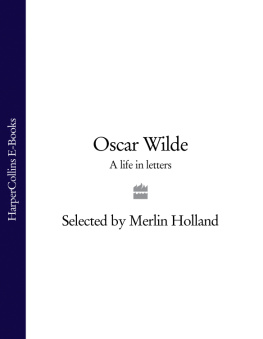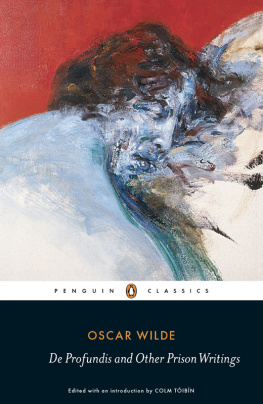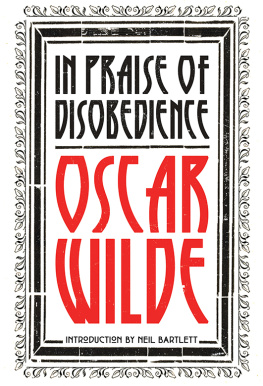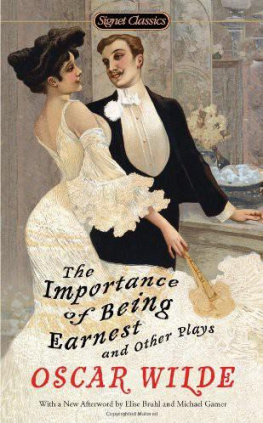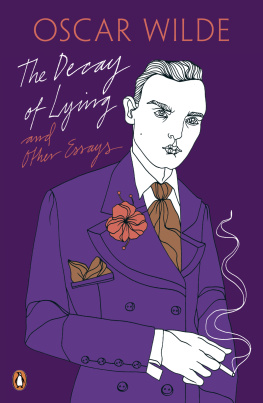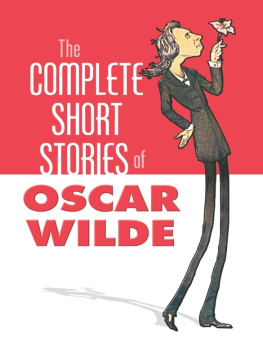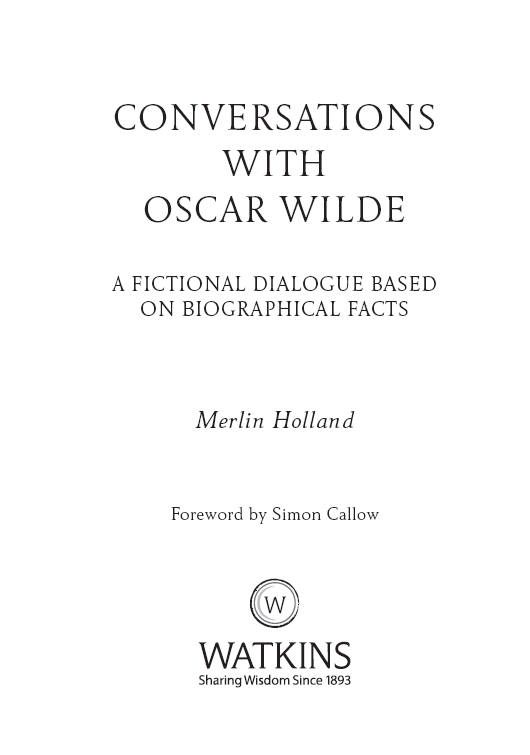CONVERSATIONS WITH OSCAR WILDE
Merlin Holland is the only grandson of Oscar Wilde. For the last thirty years he has been researching his grandfathers life and works.
He is the co-editor of The Complete Letters of Oscar Wilde and author of The Wilde Album and Irish Peacock and Scarlet Marquess, the first uncensored publication of his 1895 libel trial.
Simon Callow is a film, TV and theatre actor, as well as a writer. He played Oscar Wilde on stage in The Importance of Being Oscar, and his books include Oscar Wilde and His Circle.
Learn about key figures in science, spirituality, art and literature through revealing dialogues based on established fact. Written by a fantastic collection of authors and foreword writers gathered together to delve into the lives and achievements of some of the worlds greatest historical figures, this series is perfect for anyone looking for a quick and accessible introduction to the subject.
OTHER TITLES IN THE SERIES
Published
Conversations with JFK by Michael O'Brien; Foreword by Gore Vidal
Conversations with Casanova by Derek Parker; Foreword by Dita Von Teese
Forthcoming
Conversations with Buddha by Joan Duncan Oliver; Foreword by Annie Lennox
Conversations with Dickens by Paul Schlicke; Foreword by Peter Ackroyd
Conversations with Galileo by William Shea; Foreword by Dava Sobel
For Rupert,
who also recreated Oscar in Paris, with love.
Originally published under the title Coffee with Oscar Wilde 2007
This edition first published in the UK and USA 2019 by
Watkins, an imprint of Watkins Media Limited
Unit 11, Shepperton House
8993 Shepperton Road
London
N1 3DF
Design and typography copyright Watkins Media Limited 2019
Text copyright Merlin Holland 2007, 2019
Foreword copyright Simon Callow 2007, 2019
Merlin Holland has asserted his right under the Copyright, Designs and Patents Act 1988 to be identified as the author of this work.
All rights reserved.
No part of this book may be reproduced or utilized in any form or by any means, electronic or mechanical, without prior permission in writing from the Publishers.
1 0 9 8 7 6 5 4 2 1
Typeset by JCS Publishing Services Ltd
Printed and bound by TJ International Ltd, Padstow, Cornwall
A CIP record for this book is available from the British Library
ISBN: 978-1-78678-230-4
www.watkinspublishing.com
CONTENTS
FOREWORD BY SIMON CALLOW
Oscar Wildes fame has never been greater. He is celebrated as dramatist, novelist, essayist, poet, gay martyr. His savage treatment at the hands of the English law was for many generations a potent image of its vicious absurdity, and its eventual reform is in some senses a posthumous redemption of his suffering.
But over and above admiration for his literary achievements and pity for his cruel destiny, it is above all affection that Oscar Wilde inspires. He regularly tops those lists, compiled from time to time, of ideal dinner guests, past or present. His charm has persisted in a way that is true of very few of the great charmers of the past. Is there a more delightful volume in the English language than his Complete Letters (despite the sombre presence among them of De Profundis, which he wrote in prison)? We have no physical record of the fabled beauty of his speaking voice, alas, but the quite substantial fragments of his conversation written down by his contemporaries still make one beam with pleasure, even laugh out loud.
Wilde was not a selfish speaker. He really listened and responded, and was as free with his own laughter as he was skilled at provoking it in others (though, disarmingly, he was unable to resist laughing at his own jokes). His principal comic method was inversion, standing clich on its head, spinning surreal fantasies which often left his audience literally helpless with laughter. The effect was tonic, and it is entirely possible to believe his early biographer and friend Robert Sherard when he writes that Wilde had arrived one day at his house to be greeted by Sherards ashen-faced maid, under instructions to turn away all visitors on account of her masters violent toothache. Wilde persisted, and finding Sherard moaning, prostrate, in a darkened room, embarked on an account of his day so fascinating and so droll that little by little Sherards pain disappeared, not to return.
Wildes personality was undoubtedly a performance, but it was a generous one, and not without cost to himself. One night, it is reported, having left his hat behind, he returned to a party which minutes earlier he had held enraptured with his apparently effortless wit and bonhomie, and his host was shocked to find him drained, almost spent, unable to put two coherent words together. Prison temporarily dimmed his ability to joke, but despite persistent physical and financial misery, his wit after his release was if anything even more fantastical and prodigal than before. His incomparable deathbed observations about the wallpaper (one of us had to go) have become almost proverbial; but it is another utterance from his dying days, almost his last words, addressed to that most loyal of friends, Robert Ross, that perfectly catches his sublime naughtiness: Dear Robbie, when the Last Trumpet sounds and we are couched in our porphyry tombs, I shall turn and whisper to you, Robbie, dear Robbie, let us pretend we do not hear it.

INTRODUCTION
A meeting with Oscar Wilde over several cups of coffee one rainy afternoon in Paris has been a delight. But to conjure this has been a challenge, too, as attempting to recreate his conversational style for this book has required almost the same level of hubris as Oscar Wilde himself taking on the Marquess of Queensberry for libel back in 1895, and hoping he could get away with it simply because of who he was. How could anyone presume to put words into the mouth of one of the greatest conversationalists of all time and not risk the wrath of Nemesis? The cowardly solution would have been to cut out the best quotations from his works and letters and sew them back together in some sort of coherent form, so that no one could accuse me of trying to out-Oscar Oscar. The result, I fear, would have been one of those books of indigestible Wilde one-liners taken out of context, with a good many of the seams showing. This would have irritated readers at all familiar with his works who couldnt remember where the quotes had come from, and anyway would have wondered what they were doing here.
By way of compromise I have adopted a different principle, which has been to boil all the ingredients up together so that they still have the flavour of Oscar Wilde without always being instantly recognizable. In some cases this has meant taking quotations and changing the person, the tense or the mood so that what he originally expressed in writing becomes as near as possible to direct speech without losing his style. In other cases I have amalgamated quotes or otherwise reduced them, inverted them or used them in a context for which they were not originally intended. While this is no justification, at least we have a Wildean precedent for such a practice. Not long after finishing The Picture of Dorian Gray, Oscar started work on Lady Windermeres Fan and, never one to waste a good epigram, gave new life to many of those used in the novel by weaving them into the play. In order to avoid neologisms wherever possible but still enable the dialogue to flow, I checked Wildes phraseology by doing word searches on digitized texts. This revealed, not unexpectedly, just how modern his language was for the 1890s.
Next page
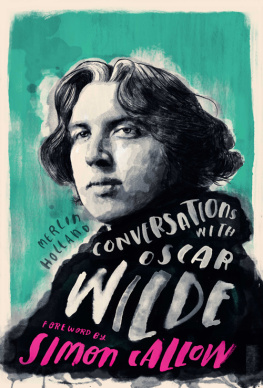

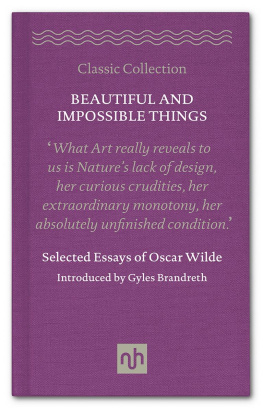
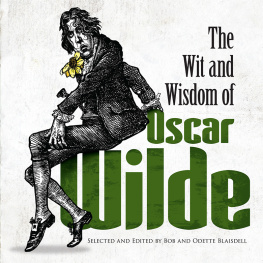
![Wilde Oscar - The secret life of Oscar Wilde: [an intimate biography]](/uploads/posts/book/228457/thumbs/wilde-oscar-the-secret-life-of-oscar-wilde-an.jpg)
